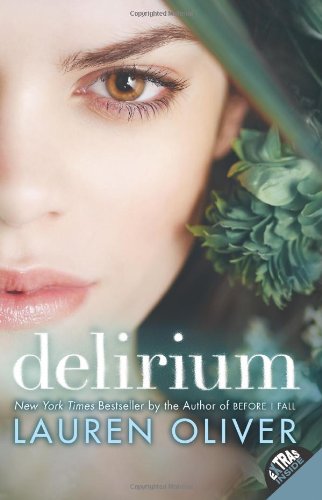All Nonfiction
- Bullying
- Books
- Academic
- Author Interviews
- Celebrity interviews
- College Articles
- College Essays
- Educator of the Year
- Heroes
- Interviews
- Memoir
- Personal Experience
- Sports
- Travel & Culture
All Opinions
- Bullying
- Current Events / Politics
- Discrimination
- Drugs / Alcohol / Smoking
- Entertainment / Celebrities
- Environment
- Love / Relationships
- Movies / Music / TV
- Pop Culture / Trends
- School / College
- Social Issues / Civics
- Spirituality / Religion
- Sports / Hobbies
All Hot Topics
- Bullying
- Community Service
- Environment
- Health
- Letters to the Editor
- Pride & Prejudice
- What Matters
- Back
Summer Guide
- Program Links
- Program Reviews
- Back
College Guide
- College Links
- College Reviews
- College Essays
- College Articles
- Back
Delirium by Lauren Oliver
Lauren Oliver’s Delirium a Disappointment
When I read the inside flap of Lauren Oliver’s Delirium, I was immediately excited; a recently published dystopian novel? I thought to myself, sign me up! I had previously read Oliver’s bestselling novel, Before I Fall, and I expected this book to be just as good, if not better. I was so excited by this book, when I thought I wouldn’t be able to get it from the library, I almost went to Barnes and Noble and bought it for myself (something I rarely do, being a pretty cheap person). Thank goodness the library came through for me and I didn’t buy this book, because it was a bitter disappointment.
The story was slow moving until the end of the novel, there was very little action, and no real climax; the few plot twists it did have were predictably unpredictable. The story itself was fairly unoriginal, it strongly resembled Scott Westerfeld’s novel Uglies. Both stories have a female protagonist eagerly awaiting a surgery that they will have on a landmark birthday (for Westerfeld’s protagonist Tally, it is her 16th birthday, and for Oliver’s protagonist Lena it is her 18th birthday). Their eyes are opened due to circumstances they are pushed into by a nonconformist best friend (Tally’s friend Shay, and Lena’s friend Hanna), which lead them to fall in love a boy who is not a part of their society (Tally’s boyfriend David, and Lena’s boyfriend Alex) who changes their perception of their society, and uncover the foundation of lies it is built on. In both books a society of rebels exists outside of their town, living in the wilderness (Westerfeld’s Smoke, and Oliver’s Wilds).
Nonetheless, there are some key differences between Westerfeld’s Uglies and Oliver’s Delirium. One of these differences is that Westerfeld’s Uglies is a well-written novel with a strong, sympathetic female protagonist, while in Oliver’s Delirium the writing is mediocre at best, and by the end of it, you might wish you had a gun so you could take out the obnoxious female protagonist. Oliver’s first person writing is a carbon copy of the writing of every other 21st teen fiction author, describing the protagonist’s world through the medium of a whiny, angst ridden teenager. Her female protagonist is oh-so relatable with her mediocre looks and attitudes, but luckily she finds a boy who thinks she is beautiful and special in every way (Bella Swan much?).
However, while most author’s at least have the decency to create a sympathetic character from the beginning, or at least give them an epiphany half way through the book that makes them less egocentric, Oliver’s protagonist Lena remains shamelessly self-centered from the beginning of the novel to the very last page. To make it even worse, it seems as if Oliver expects you to care for her self-absorbed, egotistical, cantankerous protagonist. To top it all off, while most dystopian novels leave you to think about larger ideas of morality, personality, limits, the power of the government, (think Uglies, Ender’s Game, The Hunger Games, etc.), Oliver miraculously fails to do that as well.
Of course, it’s possible I could have forgiven all of the unoriginality and tastelessness if it weren’t for one line of the book that read, “Liberty in acceptance; peace in enclosure; happiness in renunciation.” Sound familiar? Maybe that’s because it is dangerously close to the line, “war is peace; freedom is slavery; ignorance is strength” from George Orwell’s classic novel 1984. The only redeeming quality of Delirium is its appeal to teen readers.
While it’s not great literature, it is captivating enough to engage a following of teenage girls, and towards the end of the novel, it becomes a fairly interesting read. Ironically enough, I find myself eager to read the sequel to Delirium, if only to find out what happens next. If you ignore its predictability, unoriginality, and failure to live up to its dystopian contemporaries, Delirium stands out among teenage literature, which may begin to explain its spot as a bestseller.
2 out of 5 stars
Similar Articles
JOIN THE DISCUSSION
This article has 1 comment.

